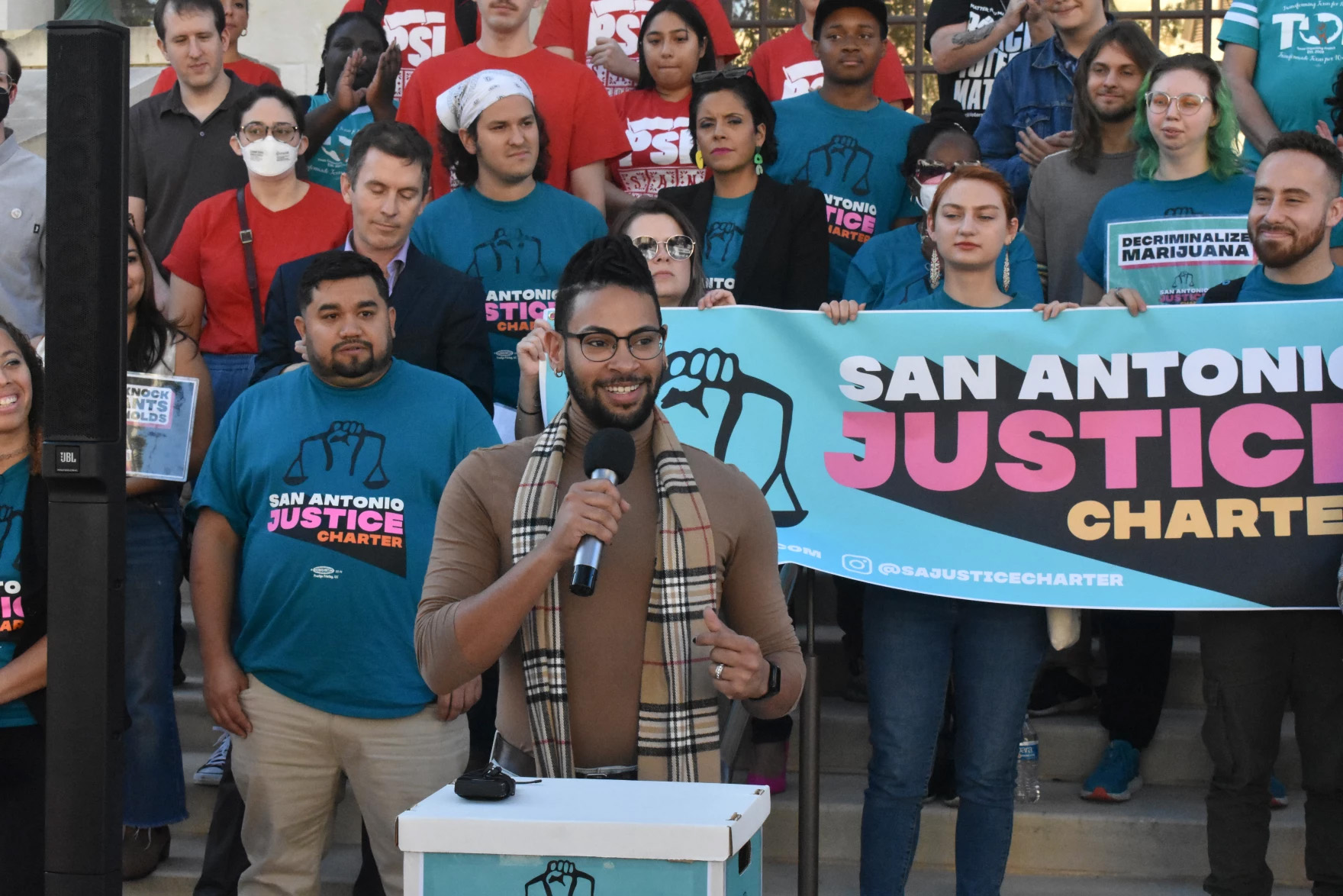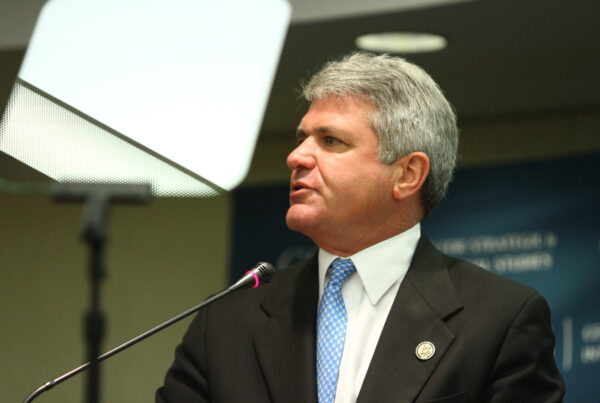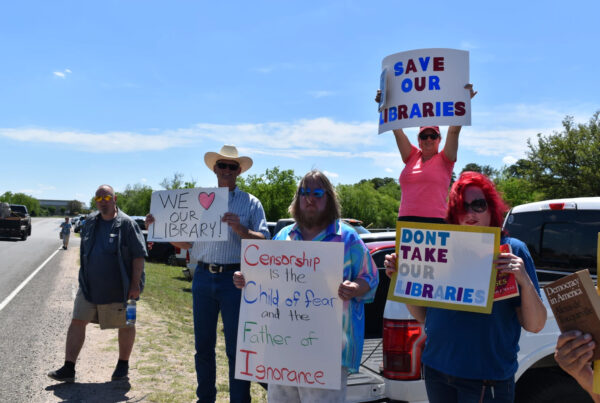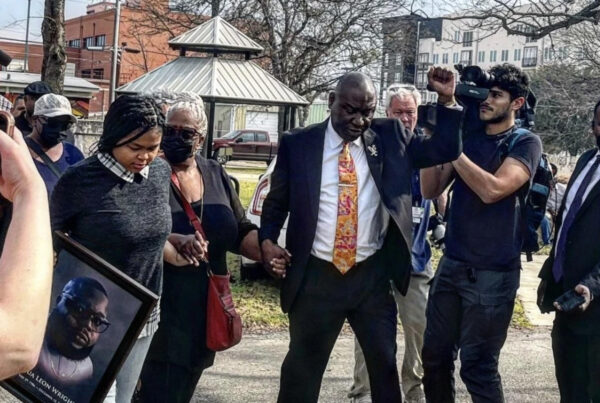Voters in San Antonio will vote on a proposition this May that is intended to reframe how the city responds to certain crimes.
Proposition A — also called the justice charter — would deprioritize enforcement of abortion and low-level marijuana crimes, expand and codify the county’s cite-and-release program, ban no-knock warrants and police chokeholds and appoint a City Justice Director.
Josh Peck, who has been following this issue for Texas Public Radio in San Antonio, said there are two main groups behind the measure.
“One is local, called ACT4SA. It’s a local police reform group,” he said. “There’s also a statewide group called Ground Game Texas, which pushes for progressive municipal policies all around the state.”
The proposition, which would amend the city’s charter, has already faced some challenges. Groups against the proposition took the issue to court, arguing it should be broken up into multiple ballot items. That issue failed and the measure will continue as one proposition.
San Antonio City Attorney Andy Segovia has also raised doubts about whether many of the policies within the proposition are enforceable.
“He says that because of the language of Prop A, it violates state law and therefore the city cannot enforce it even if voters pass it,” Peck said. “Proponents of Prop A disagree and have floated potentially a lawsuit or just further organizing if the city decides not to enforce it if Prop A is passed. The city’s position is that they’re worried about being sued by the state if they try to enforce what they say is an illegal city charter amendment.”
One of the groups offering a lot of vocal pushback is the San Antonio Police Officers Association. They said in a campaign email that shoplifters and restaurant patrons can rack up a bill for $750 and walk away without paying a dime.
Peck said the association is referring to the city’s cite and release policy, which is already practice in San Antonio.
“[Under this policy] officers have the authority, and in this case, the duty, to give someone a citation and then they have to appear before a magistrate judge,” Peck said. “Then it can be determined [whether] they can go to a diversion program. And sometimes they can just be charged anyway. But some of these cases are dropped by the district attorney.”
When it comes to the issues of marijuana and abortion, Peck said it is hard to say how this charter amendment will be enacted because of the questions around enforceability.
“Essentially what Prop A tries to do is it tries to divert police resources away from making arrests or even investigating cases related to marijuana possession under four ounces or abortion crimes,” Peck said. “It basically says things like police can’t use the smell of marijuana as probable cause to investigate someone or to make an arrest. So that’s the goal, is to really just eliminate all types of criminal enforcement around these two issues.”
Ground Game Texas has been behind similar efforts to decriminalize marijuana in other Texas cities, including in Austin.
“In all of the cities, voters have passed, oftentimes with supermajorities exceeding 75% of the vote. But the aftermath of enforcement has been pretty mixed,” Peck said. “You have some places that have repealed the city ordinance that was passed by voters. You have others that are really slow walking this enforcement. And it’s really not clear how enforcement is working.”
Peck said it is hard to predict whether this measure will pass.
“The Police Officers Association, as well as a lot of other groups, have put in quite a lot of money, nearly nearly $1 million, into defeating this effort,” he said. “Prop A is so expensive. There’s about six different policies. So you have people who love some hate others… I think it’s pretty tough to say whether or not this is going to pass. But abortion and marijuana basically have been the headliners. You can see the argument that it’ll pass because of how popular those are in San Antonio.”

















